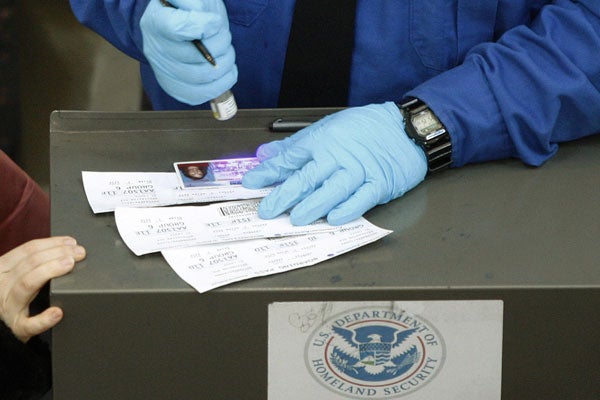TSA: No Room for Sequestration Cuts?
T. Elliot Gaiser / Jason Lloyd /
President Obama claims that unless Congress raises taxes to undo the imminent automatic budget cuts as sequestration, the Transportation Security Administration (TSA) would be forced to reduce security measures, leaving travelers and the airways vulnerable and increasing wait times at airports.
Is there really not a dime that could be cut out of the TSA’s budget that wouldn’t compromise security? The facts cry foul on Obama’s claim.
For example, the TSA has wasted millions of taxpayer dollars, according to a joint report by the House Transportation and Infrastructure Committee and the Committee on Oversight and Government Reform. The report showed that:
- The TSA has a warehouse in Dallas, Texas, where 5,700 pieces of unused security equipment sit in storage. The dormant equipment is worth $184 million.
- This equipment storage cost taxpayers another $23 million in depreciation, because nearly all of the 472 carry-on baggage screening machines in the warehouse have been sitting there unused for over nine months.
- The agency spends another $3.5 million every year just to lease and manage this warehouse.
The TSA’s personnel numbers are bloated, too. Even though the number of people traveling via air has decreased on net, the TSA has hired more employees, as detailed in this report by the Committee on Homeland Security.
The TSA employs 62,000 people—over 47,000 of which are screeners. About $1.5 billion out of a $3 billion annual budget—yes, half—is consumed by payroll, compensation, and benefits for these screeners. The ratio may be appropriate, because the TSA necessarily employs people to carry out its mission. But, as the Committee report states:
A private sector entity in the face of a shrinking customer base usually must downsize. TSA, by contrast, has continually grown its ranks despite fewer travelers, an economic downturn, and purchasing expensive new screening technology.
An ordinary family that had to tighten its belt and reduce spending would not start by cutting essentials, such as groceries. It would trim non-essentials, such as eating out daily or magazine subscriptions if they weren’t being read.
So should the federal government. As Heritage Foundation expert Jessica Zuckerman writes, “Congress should press TSA to sharpen its mission focus, gain greater efficiency in operations, and more effectively manage its workforce.” Clearly, the TSA could find ways to cut spending that wouldn’t lead to less security or longer lines at the airport.
T. Elliot Gaiser and Jason Lloyd is currently a member of the Young Leaders Program at The Heritage Foundation. For more information on interning at Heritage, please click here.

